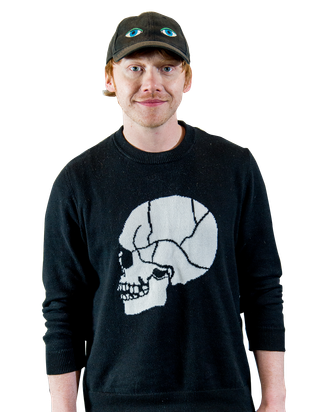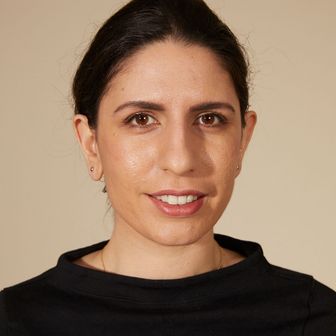
You know Rupert Grint as Ronald Weasley, the Harry Potter character he became synonymous with for more than a decade of his life. Currently, he’s playing a role that couldn’t be a better counterpoint to his Potter persona: Charlie Cavendish, a young hustler on Crackle’s Snatch, a (very) loose adaptation of the 2000 Guy Ritchie film. In advance of the show’s premiere tonight, Grint, 28, stopped by the Vulture TV Podcast to talk moving on from Harry Potter, why it’s hard to separate where Ron ends and he begins, and his disappointing Sorting Hat results. Read our conversation below, and hear the full version next Tuesday on the Vulture TV Podcast.
On Snatch, you play Charlie Cavendish, one member of a group of 20-something hustlers who fall into organized crime. How would you describe your character?
It took me a while to work out who he was. He comes from a very well-to-do aristocratic family, yet they’ve spent all their money and live in this kind of abandoned mansion. His parents have these strange parties and his dad grows weed in the basement. He feels very detached from his family, yet he still has this pride of the family name and keeps up that appearance. So it’s really about how these young group of hustlers form this family.
Something we’ve talked about on this podcast before is actors who are so defined by one role, but are then able to reinvent themselves in their future roles. It usually seems to require something extreme, maybe even physically transformative. In choosing roles post–Harry Potter, how consciously have you thought about distancing yourself from Ron Weasley?
Yeah, I think it’s always going to be a challenge. They’re so widely liked and watched and new generations are coming into it, so it’ll always be there. It’s never really been a conscious decision, I didn’t really go out to pick shocking, very adult roles. I’m driven by scripts and people around me. But yeah, you do want to try and step away from the comfort zone.
In a way, having played a role like that, it can make it easier for audiences to sympathize you when you play, say, a hustler, because they remember you as someone they love and trust.
Yeah, that’s interesting. I think it’ll always be with me. I had a weird relationship with that character because after that we kind of merged into the same person. I find it very hard to separate where I end and Ron begins.
Especially at such a young age I imagine you’re just figuring out who you are too, probably.
We went through quite an important time in our development, I think. And naturally we just merged into the same thing. It’s quite strange growing out of it. I saw the play, Harry Potter and the Cursed Child. It was very strange.
Oh yeah, because you’re watching an older version of yourself.
Yeah, and it’s a character that I feel is part of me. It was almost like an out-of-body experience. But yeah, it was incredible seeing it move on, and seeing someone else’s interpretation of it as well was really interesting. I really enjoyed it.
Had you talked to that actor before he took on the role?
No, not at all. It was very much a separate thing. I met him after, we had a good chat. But yeah, it was mad [laughs].
It seems like you and Daniel Radcliffe and Emma Watson have all made the transition from child star to adult actor well. And I’m curious if you’ve thought about why, as that can be a kind of fraught transition for a lot of people. Yet you all seem very well-adjusted and picked interesting projects post–Harry Potter.
It was a very unique, incredible part of my life. We lived in this bubble, so it was very hard to see out of it. Immediately finishing the last film, it was a strange time, it was an overwhelming feeling. It was like 12 years, consistently, and then it just ended after one take. It took a while for me to adjust and work out what I was going to do. But it was nice to do nothing. I did have a big break, caught up on some things. It was a big sacrifice, I think, as much fun as it was, naturally you do miss out on a lot growing up. So yeah, I just felt like I needed to do a bit of me time.
And then coming back to work, did you face any challenges in being typecast?
Right, yeah. It’s been quite open really, I’ve had the opportunity to do a lot of different things. Theater was what I really wanted to do, and I found that very educational. I learned a lot from that.
Harry Potter was your first major experience with acting, and I’m curious if there’s anything you learned about acting working on it that’s really stuck with you, and if there’s anything you’d had to kind of unlearn in doing other types of acting?
Yeah, it really was an education being on set. You really learn the inner workings behind the camera — it was kind of like a long film school. It was very different because playing the same character for so long, it kind of becomes a part of you.
It’s almost like TV in a way because you were with it for so long.
Absolutely. And also you know where the story’s ending, so it’s quite a clear arc that you can follow. That’s why I love TV, actually. You don’t really get much opportunity in film to have a real journey as a character, through each episode, which is something I’ve enjoyed with Snatch.
Like you said, with Harry Potter, you knew how it was going to end, but with something like Snatch, how many scripts do you get ahead of time? There’s that element of not knowing how your character will change and who he will become
Definitely, yeah. That was the case with Snatch, they were writing it as we went along. We really didn’t know. We were filming an episode and we didn’t know how the episode ended, so it was very in the moment. Actually, I think that helped with Snatch. A lot of it is high-stakes drama, so it’s good not knowing exactly what was going to happen. It made it feel very spontaneous. I think that kind of worked in my favor.
So, you’re not on social media.
No, I feel I’m the only person in the world [laughs].
Is that because you want to keep your life a bit separate?
I guess so, yeah. That is kind of the key. I don’t really feel comfortable in that world. I value privacy a lot. You take it for granted being anonymous, I miss that sometimes. Everyone’s really great, but sometimes you just want to be invisible.
I saw you on The Late Late Show With James Corden, and you were saying how you get mistaken for Ed Sheeran 50 percent of the time now. Does that allow you to stay anonymous in a way, or is it still the same thing —
It doesn’t really change anything, if anything, it makes it even worse. People who mistake me for Ed Sheeran, I do question their dedication as a fan. I can’t really see a huge resemblance, apart from the hair.
I saw on Pottermore that you got Hufflepuff for your Hogwarts house. Were you surprised by that?
Yeah, and a little bit disappointed to be honest. That’s just not the coolest one, is it? Yeah, it is a really clever algorithm.
It’s amazing. I was so impressed by the test because I’ve taken some in the past and this one was so much more poetic in a way, where you really couldn’t game the system.
No, yeah. I think I did it a few times as well, and it was always Hufflepuff. You want to be like Gryffindor or Slytherin.
This interview has been edited and condensed.


